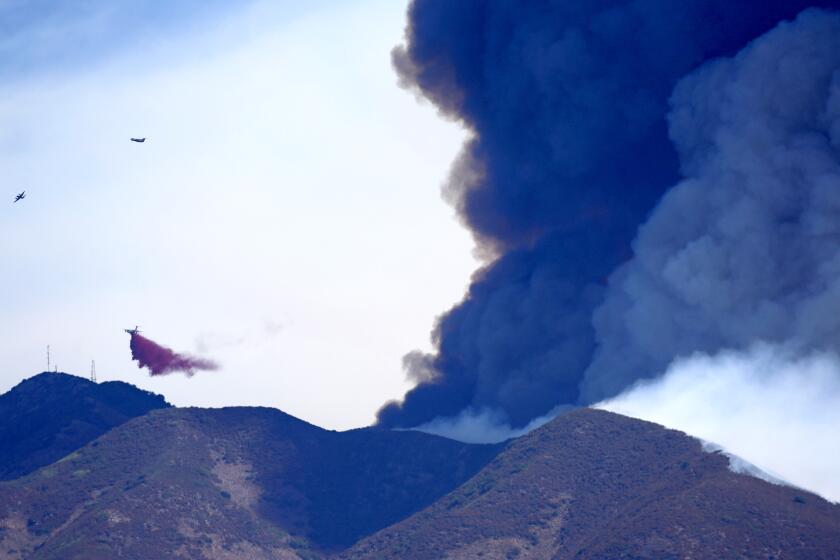Cut the power of fossil fuel
It’s not just Sandy. Sandy was off-the-charts terrible, a storm that broke every record in the books: for storm surge, for barometric pressure, for sheer size. But it also blew in toward the end of what will be the warmest year in U.S. history. It was a year that already had seen a summer-in-March heat wave described by meteorologists as the most statistically freakish weather event in the continent’s history, an epic drought that raised grain prices 40% around the world and a record-setting melt of Arctic ice.
It was a year in which scientists at NASA’s Goddard Institute for Space Studies, who couldn’t take the subway to their Manhattan offices in the days following Sandy, calculated that the 1-degree rise in global temperature we’ve already seen has raised the chance of extreme heat events by an order of magnitude.
In other words, this year has been a wake-up call. There’s no longer any room for doubt or for wishful thinking about the future. We know the damage that global warming has done so far, and we can predict with ugly certainty what will happen if we don’t change course.
The world’s governments — the Group of Eight, the Group of 20, Brazil, Indonesia, Russia, China, the U.S. — have all agreed to try to prevent the planet’s temperature from rising by more than 2 degrees. That’s too high a threshold — we’ve already seen that a 1-degree rise is melting the Arctic — but it’s the red line the world has drawn, and it’s better than nothing.
The world’s scientists have agreed, roughly, about how much more carbon we can emit and have a reasonable chance of staying below that 2-degree line: about 500 billion tons by 2050. At current rates of emissions, we’ll blow past that mark in less than 15 years.
We’ll have our work cut out for us to meet that target in the best of circumstances. But here’s a really scary complication: a number recently supplied by the Carbon Tracker Initiative in Britain. The world’s fossil fuel companies, and the countries that operate like fossil fuel companies (think Venezuela or Kuwait), already have about 2.8 billion tons of carbon in their reserves, five times more than the most conservative governments on Earth think is safe to burn. That coal and oil and gas hasn’t yet been taken from the ground, but the companies and governments that own it clearly plan to extract it. They’ve declared it to the U.S. Securities and Exchange Commission, borrowed money against it, sold shares based on it. And they are searching for more. Exxon alone already has in its reserves 6% of the carbon necessary to take us past 2 degrees , and they boast of spending $100 million a day looking for more.
This math has a clear pragmatic meaning: We have to figure out how to keep that coal and oil and gas in the ground so it never gets burned, and the only way to do that is by speeding up the transition to renewable energy. That will require spending on research, and it will require a stiff price on carbon to spur conservation. That will be hard, but it’s not impossible. Germany is the one big country that’s taken this crisis seriously, and there were days this summer when it generated more than half its power from solar panels within its borders. Germany’s program isn’t perfect, but then, Germany doesn’t have Florida and Arizona and New Mexico and the California desert.
The math has a clear moral meaning too: Companies that are determined to continue searching for and encouraging the use of fossil fuel are, in the age of global warming, rogue forces. They could choose instead to be part of finding solutions by spending more of their massive research budgets on developing clean energy instead of finding and marketing more fossil fuels. Instead, they make massive political contributions to ensure their continued input on the laws that affect them. (Just weeks before Sandy, Chevron gave $2.5 million to a conservative “super PAC” with close ties to House Speaker John A. Boehner.)
Reining in the fossil fuel purveyors will probably require revoking their social license, as we did in the past with tobacco companies and with firms that did business in apartheid South Africa. Until oil companies decide to stop blocking change in Washington and other world capitals and start turning themselves from fossil fuel companies into energy companies, their favored status — with its tax breaks and other perks — should be revoked.
All of us, clearly, help fuel global warming. But we don’t always have the choice not to because we live in a world with highways instead of trains and subsidized oil instead of subsidized solar power. We can make changes in our personal lives, but until we can break the power of the fossil fuel industry, it’s useless to expect our leaders to act. The 20-year bipartisan resistance in Washington to making real progress on climate is the ultimate proof of the industry’s power.
This year should have opened our eyes. And now that they’re open, maybe we’ll finally read the math that’s written on the wall.
Bill McKibben is the founder of the global climate action campaign 350.org. The organization is currently visiting 21 American cities in 21 days with its “DoTheMath” roadshow, which comes to Los Angeles on Sunday.
More to Read
A cure for the common opinion
Get thought-provoking perspectives with our weekly newsletter.
You may occasionally receive promotional content from the Los Angeles Times.










